There’s a stretch of coastline in Southern California that starts near San Clemente and rolls south, with its rugged cliffs and narrow beaches and blue-steel colored water that bleeds into the horizon where it merges with the sky.
It is here, in the early mornings when the pale haze moves off the cooling water and blankets the shoreline with a ghostly smoke, and the wind scoops the sand and tosses it skyward and it swirls into a frenzy. And then the sun wedges itself between the peaks and peers over the mountains and kisses those falling grains of beach fairy dust — turning this sculpted expanse of wonderment into a magical Hollywood scene of tinsel and warm hues and fog machines.
At the southern end of this bliss is the hard-stop border of Marine Corps Base Camp Pendleton, and out to the west, beyond the railroad tracks and rattlesnakes, isolated in that liquid blue steel, is Lower Trestles, the iconic surf break known around the world for being nature’s wave machine.
Legends are born at Trestles, a series of three distinct breaks. The shoreline is littered with ocean stones, polished smooth by the ebb and flow of crashing waves. The sun’s rays bounce off the stones’ glossy sheen, adding color and texture to a scene nearly picture-perfect, save the nuclear power plant in the distance.
At low tide, surfers gingerly walk over the stones, careful to avoid a broken ankle. The stones are like a right of passage — survive this first challenge and be rewarded, for the prize is the renowned break that offers rights and lefts, a canvas that any accomplished wave rider can paint with imagination and guile.
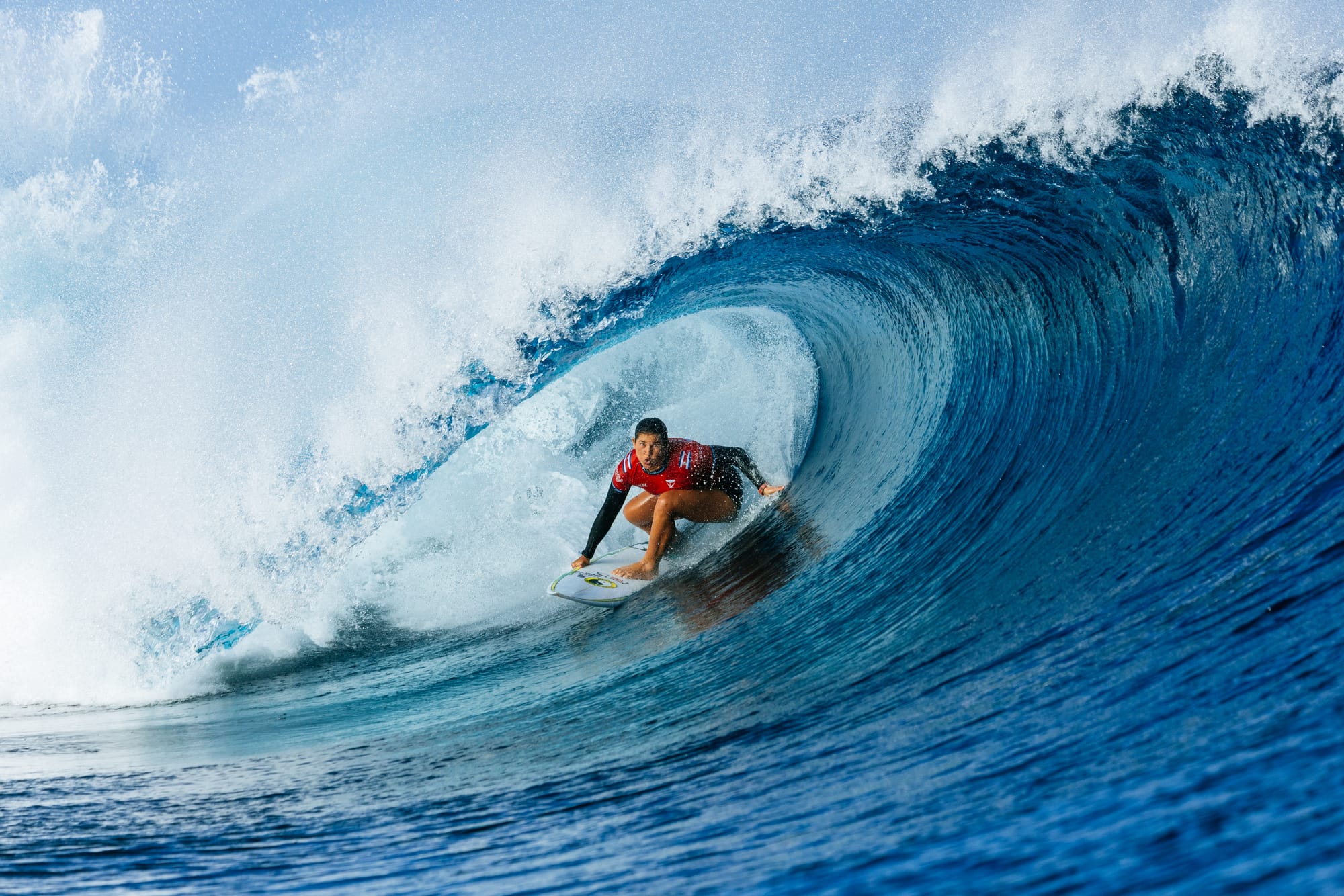
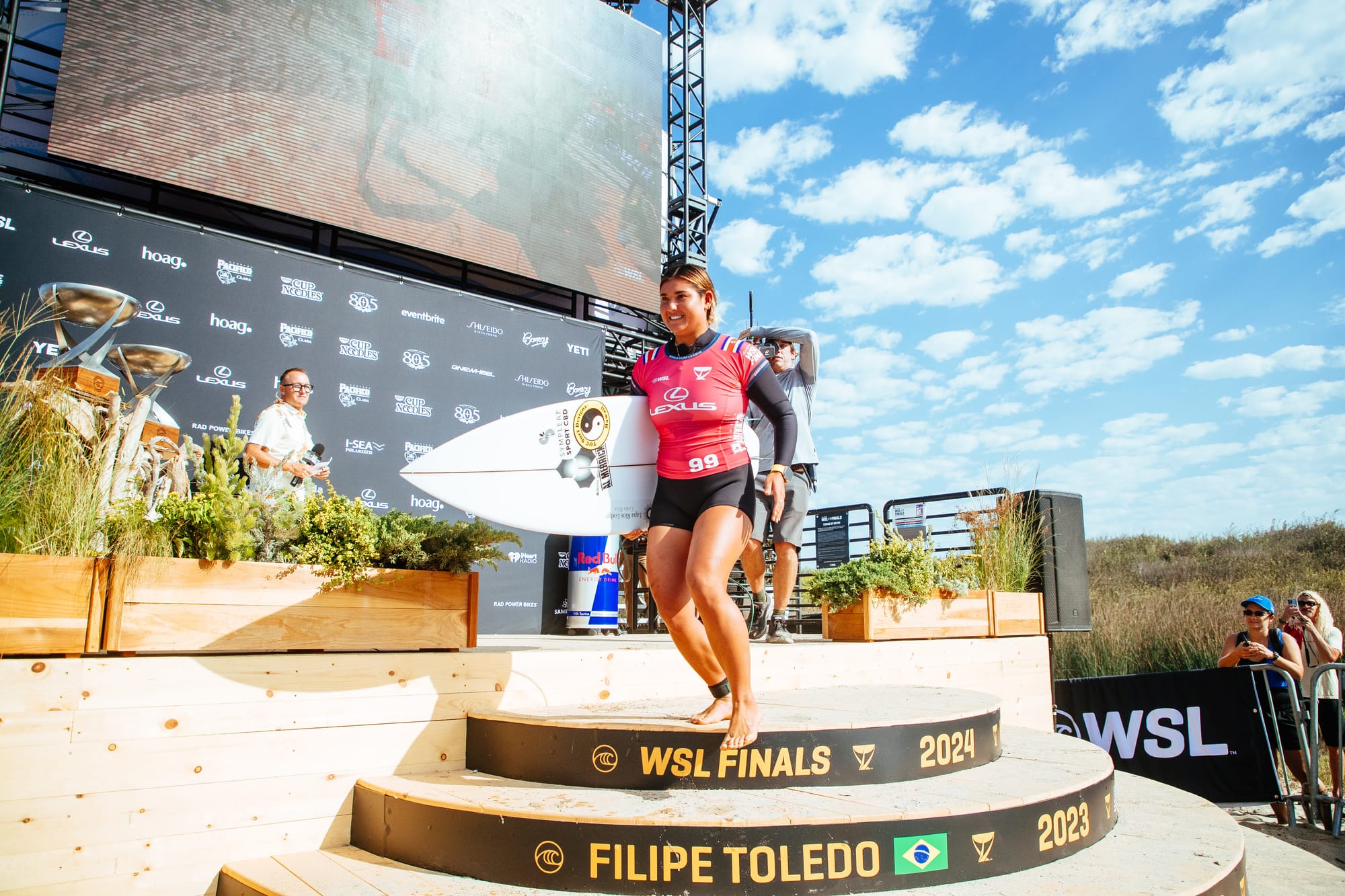
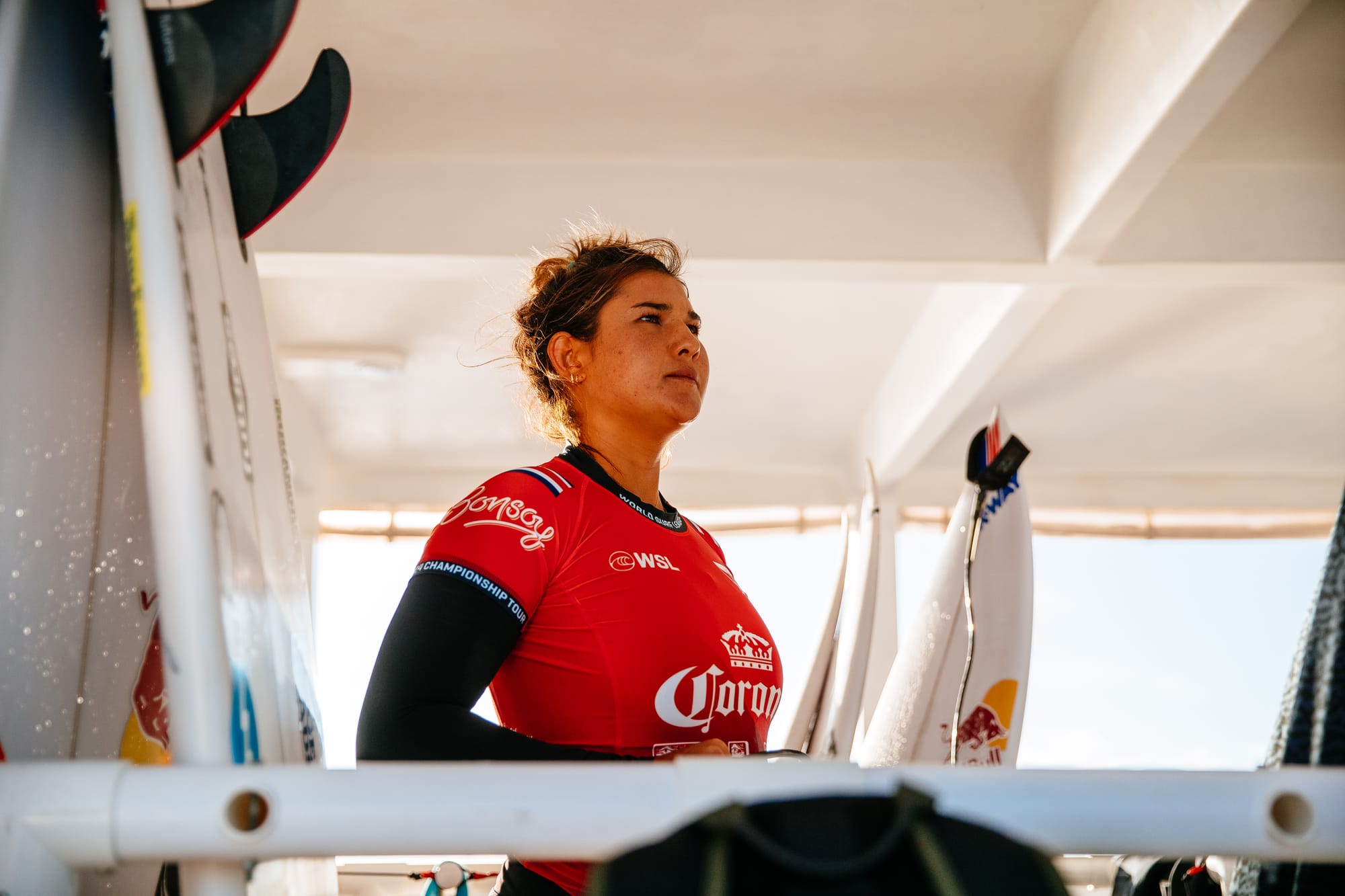
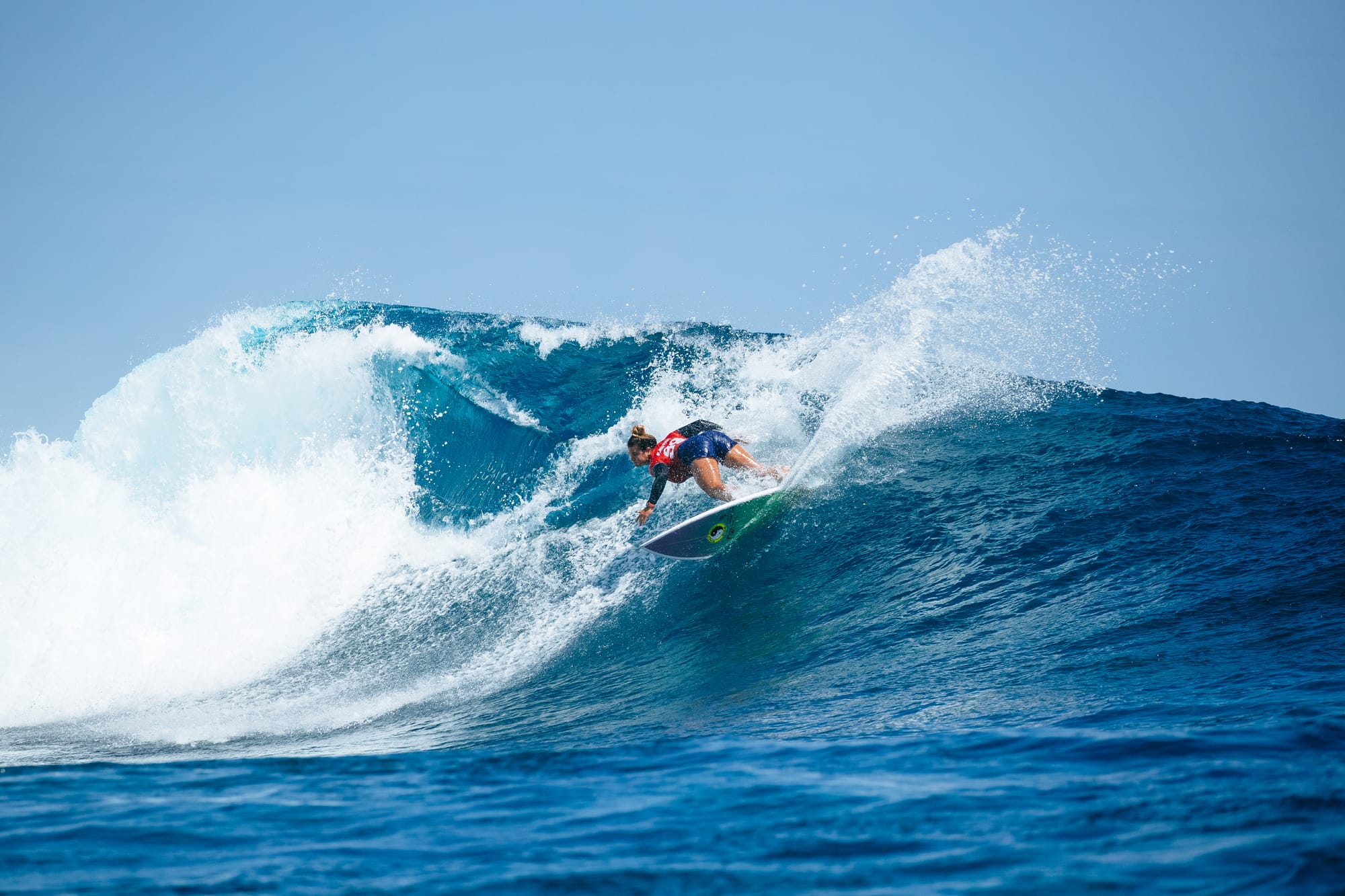
Brisa Hennessy represented Costa Rica at both the Tokyo and Paris Olympic Games. [WSL/Getty]
Nearly a decade ago, a young teen who forged her craft in Costa Rica arrived in this paradise with her palette of skills and made a statement to the surfing community. She won the 2013 USA Championships in the U-14 division. It was the first of many wins that catapulted her — and others in that same field — to the top of the sport today.
As she stands in a grassy park steps from the San Clemente Pier, a fierce wind whipping her hair and the lingering buzz of a World Surf League Finals press conference fading behind her, she looks back at that first major win and can connect the dots to this moment.
“I think that changed my dreams of what I wanted to be and I was able to see what is possible.”
She has returned once more to the scene of her first major triumph as one of the five best female surfers on the planet. They are here to win what is known as the Super Bowl of surfing.
For Brisa Hennessy, now 24, being in San Clemente presents an opportunity to close the book on a difficult 24 months marred by life-altering events and self-doubt. Now, she can pull on the number 99 pink jersey and step into what she calls her flow state. Entering the Finals, she’s ranked third in the world and really has nothing to lose.
Imagine being raised off the grid in a dense, leafy jungle, just you and your parents and the ocean at your doorstep. Take it a step further and imagine that place is in Costa Rica, known for its rolling sets, empty beaches and vibey surf culture.
This was Brisa’s life until age eight. Her parents, both Americans, moved to the tiny Central American country and operated a surf school. Two years into the adventure, along came little Brisa, an only child whose first language is Spanish. Her schooling was a combination of at-home and a tiny three-room building with a couple of other kids in the village of Matapolo.
"It’s a pretty unconventional upbringing, for sure. It's completely off the grid. Pretty much in the middle of the jungle with not that many people and there's no infrastructure at all. And my parents just had this dream to go down there. They had me a couple years later, and my dad is a professional fisherman, and my mom was a chef, and they had a surf school.
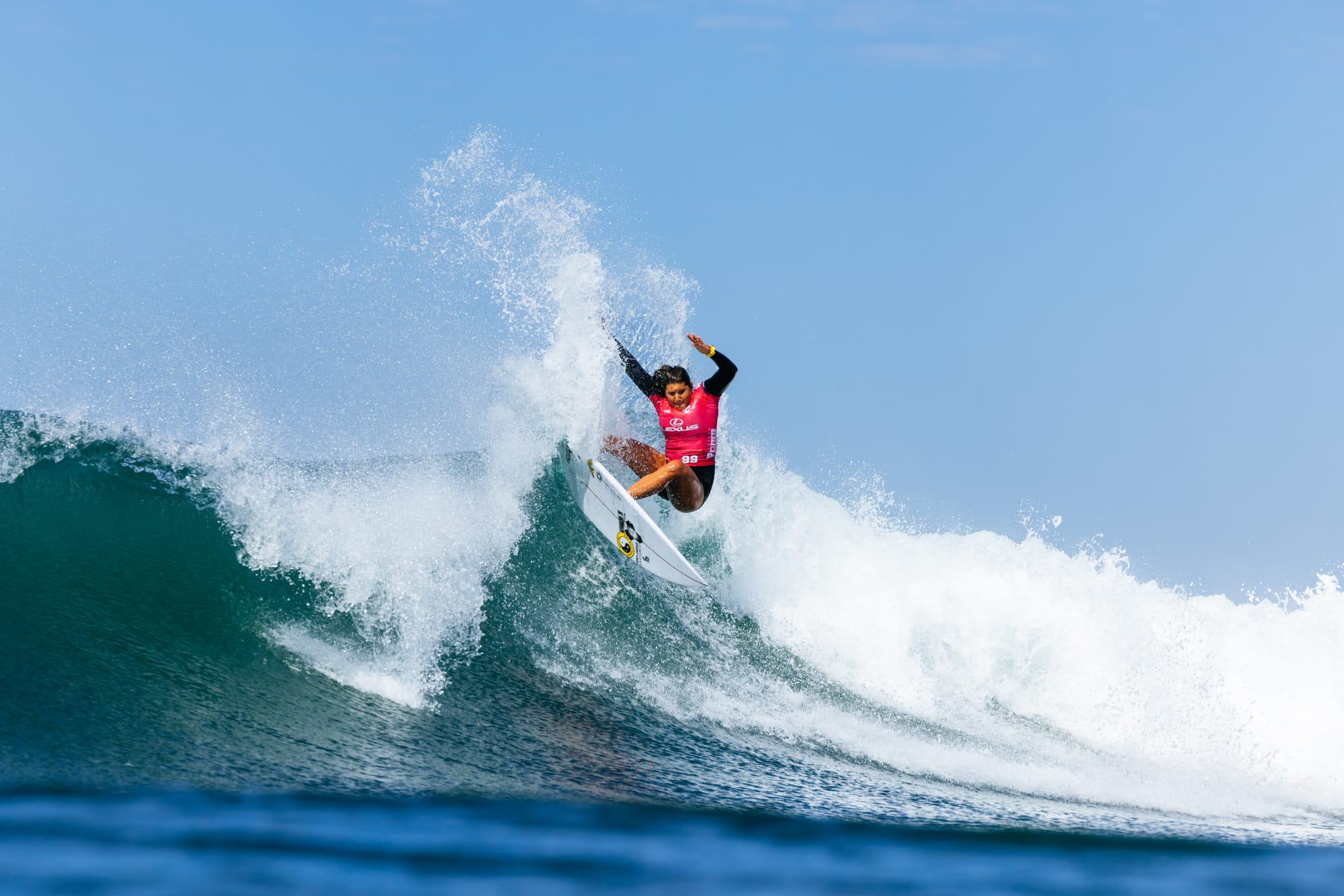
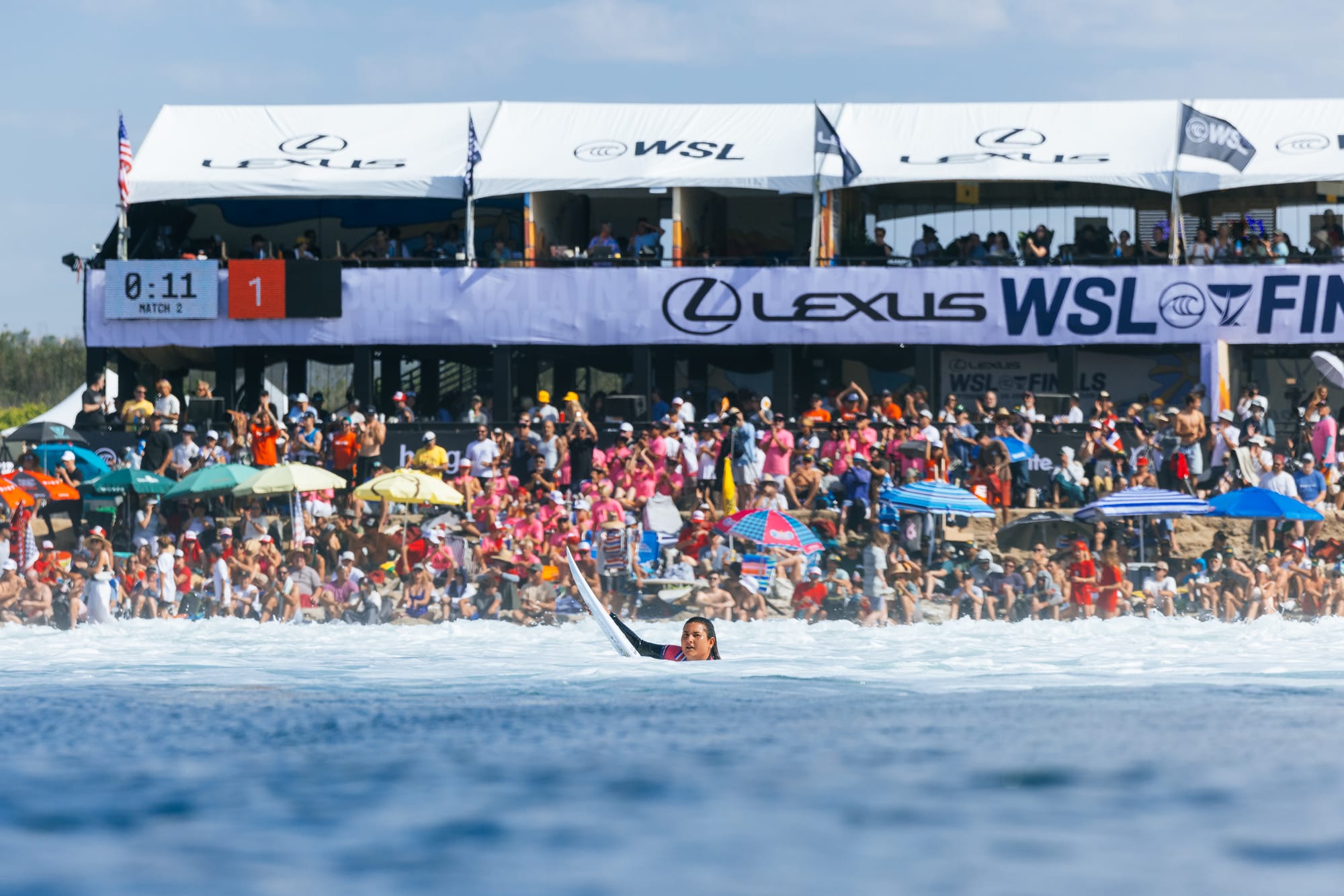
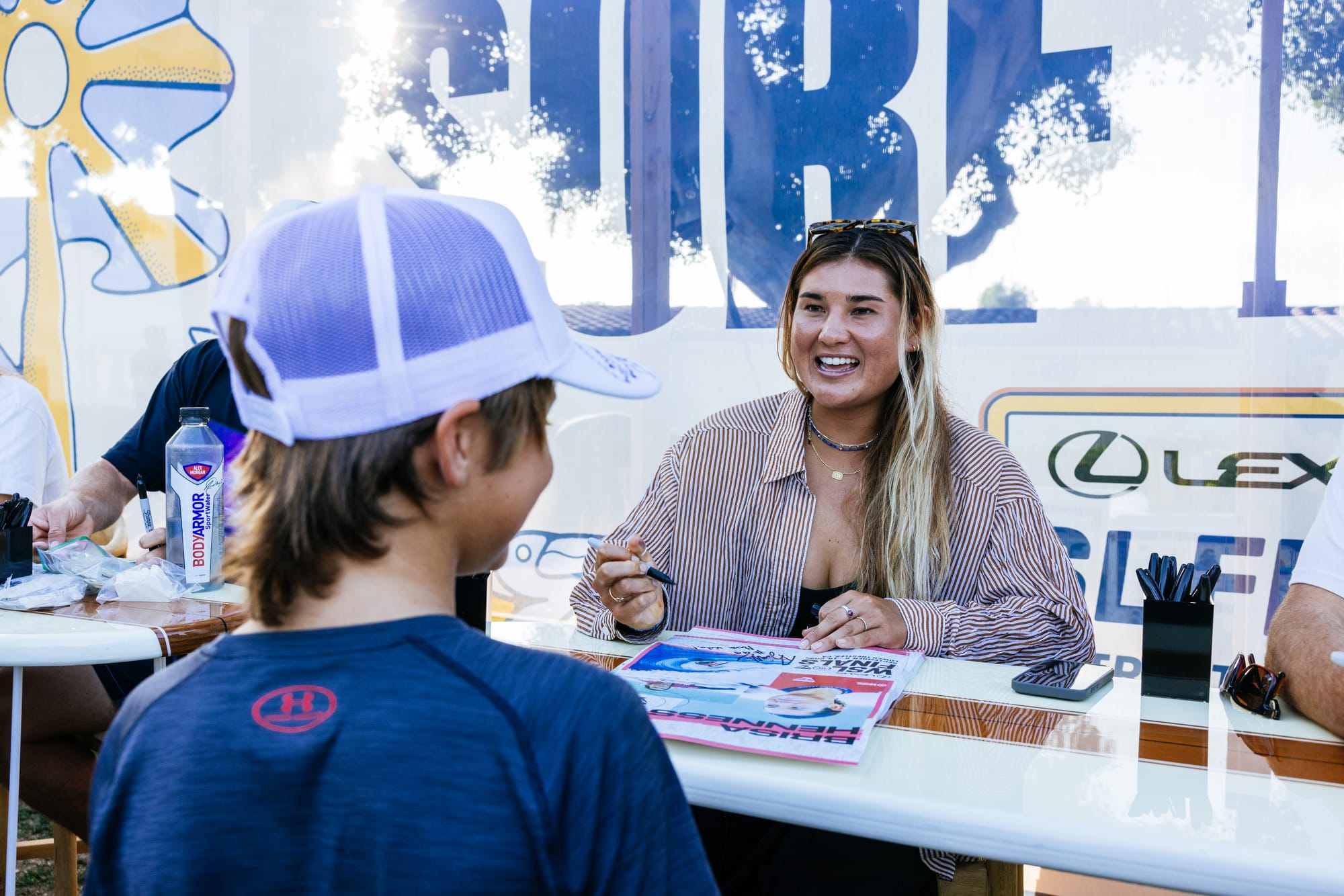
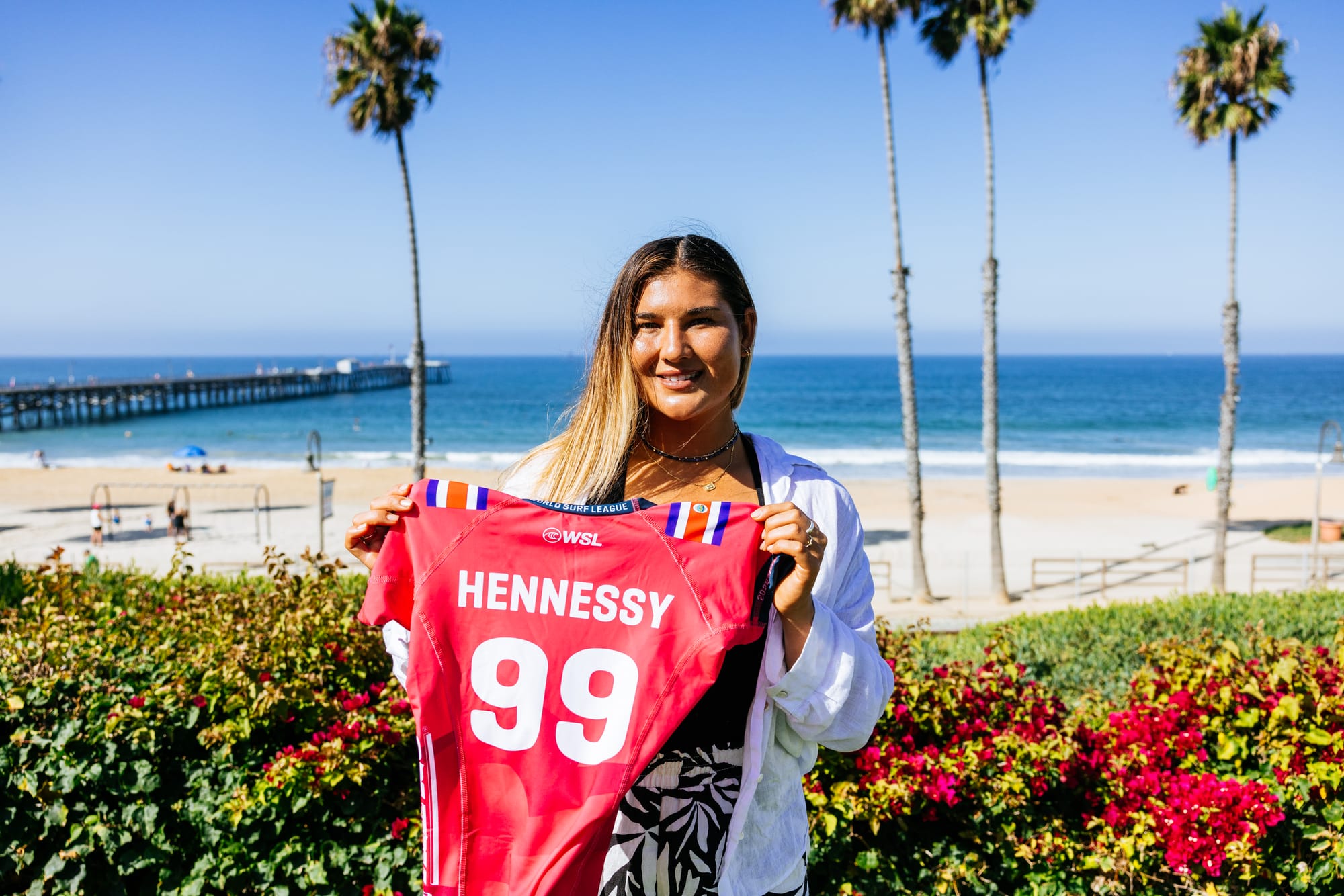
Brisa's warm personality makes her a fan favorite everywhere she travels. [WSL/Getty]
“And I think that's where I had no choice in the matter but to be a surfer. And it was amazing. I found my love for surfing there and, obviously, my connection to the ocean and nature and I think that's a nice secret ingredient to life.”
Brisa remembers her parents having a flip phone. And there were a couple of two-way radios around. A generator provided electricity. A single restaurant. No grocery store. Aside from that, communing with nature was never something she needed to accept; she was born into it. The lifestyle and connection to Earth gives her a peaceful persona.
There’s no surf lingo in her lexicon. She is conversational, pleasant, mannered and approachable. Preceding our chat on that patch of grass above the pier, a woman and young child approached her over the cordoned-off media space and asked her to sign a hat. She greeted them warmly and accepted; her interactions graceful and mindful of the role model she had already become.
For Brisa, these traits are organic, just like her environment growing up.
“I think it's important to always be connected to nature and your surroundings. And what is the best way? I think when you do that, you really reconnect to yourself, which is the ultimate goal, and also just living a simple life. I think if you're surrounded by good people and the ocean and able to find that balance, I think that's everything.”
Eventually, her family moved to Hawaii and she spent time in Fiji as well. Regardless of where she laid her head, this native Costa Rican who speaks fluent Spanish and English managed to find herself near the one place that has given her balance — the ocean.
Teenage Brisa rose quickly through the ranks, establishing herself near the top of the sport. Inspired by a young Carissa Moore and now pushed by a remarkable group of young talent, Brisa has remained in the conversation about which female is the best.
By the time 2018 rolled around, she had qualified for the WSL’s Champions Tour — the first Costa Rican to earn that honor — and in 2020, she did the same for the Tokyo Olympics (pushed to 2021 due to the pandemic). Consistently, she finished in the top 10. Her stock was on the rise.
And then approximately two years ago, something happened. She wasn’t feeling right.
“There was a lot of weird complications that started kind of stacking up as the years went by. I think I had a lot of brain fog. I had a lot of muscle fatigue, and I just felt like I had no energy. I mean, as an athlete that's the key to everything.
“So that was really hard to digest. And I think that was one of the biggest reasons why I went (to see a doctor) and I felt like I wasn't myself anymore. And, I was diagnosed with hypothyroidism and central hypothyroidism. And then they they found that there was a benign tumor in the pituitary gland, which is the overall system that talks to every part of our body, which is pretty important.”
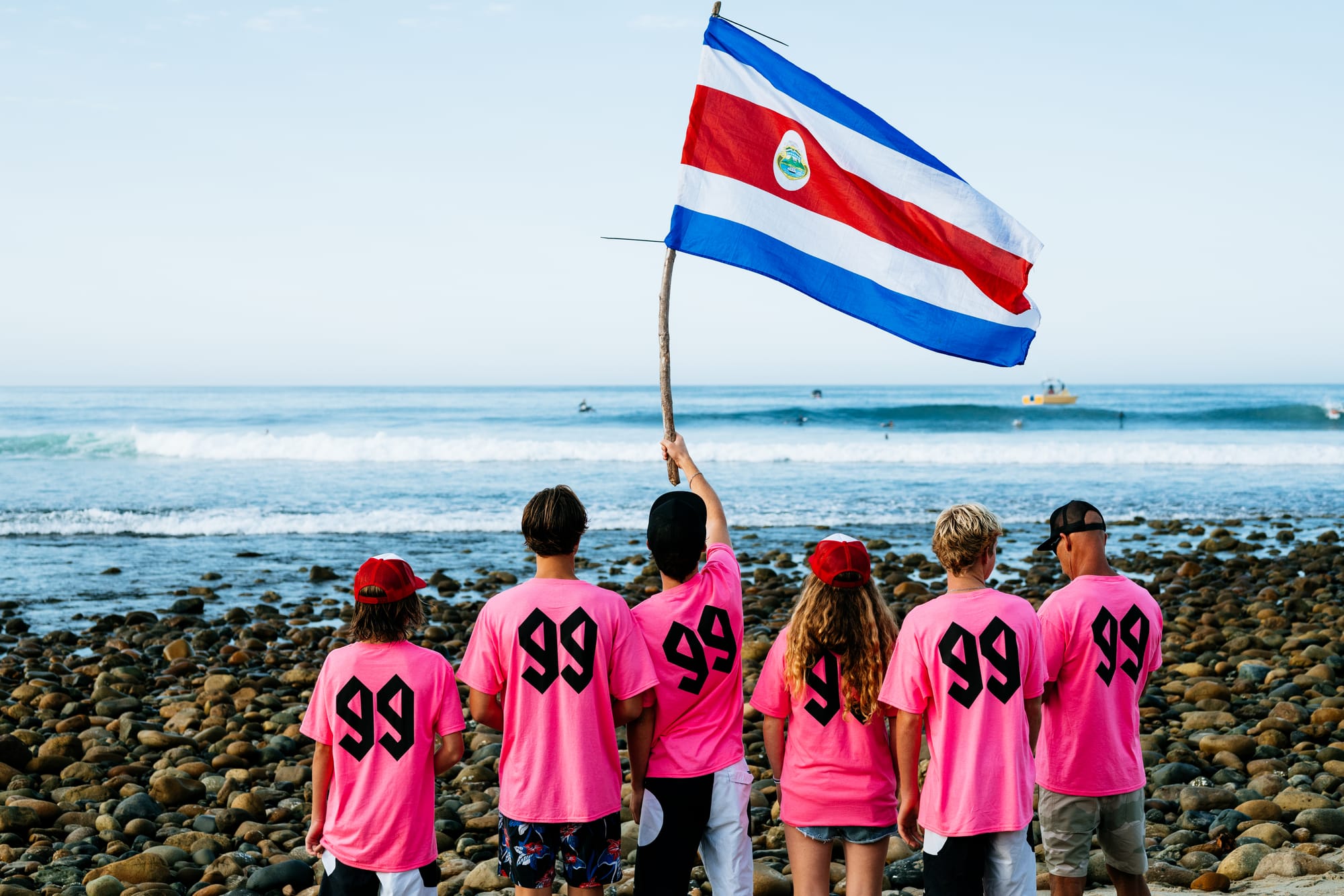
Brisa found relief in knowing that doctors could pinpoint her general malaise. The next steps, though, were scary. They suggested surgery to remove the tumor. Understandably, this wasn’t appealing to her. Ultimately, she made the decision to forgo the knife and try more natural remedies.
“The big thing my naturopath was saying was we can definitely shrink it just by lifestyle, how we change, how we respond to stress. Surfing is such a stressful environment sometimes, and there's so much uncertainty and we're constantly in fight or flight mode. And I think this year I just really made it a goal of mine to try not to be stressed out, especially in the little things.
“And I think that's really helped with my mental health. And I feel like, yeah, hopefully that little guy in there is gone.”
Around the same time, Brisa found the courage to discuss a series of converging events in her life that weighed on her. Body image issues, depression, dysmorphia. It was like the largest barrel tube of mental health issues was facing her down and she had to trigger that fight or flight mode.
While trying to come to terms with her afflictions, she continued to surf, largely because the 2022 WSL Finals loomed. She wasn’t missing that event. But the ever-mounting concerns about her health meant her best was something she couldn’t attain. She finished fifth.
The following year, 2023, she started the season without a full reset. After five competitions, she dropped off the tour, needing a much-needed respite. She later told Surfer magazine, “It was such a big sign from the universe saying I needed to slow down and take that space for myself.”
A couple of times during our conversation, Brisa slipped in the term flow state — the synchronizing of body and mind when you’re fully immersed in physical activity. In 2024, she has found hers. Granted a wild card to start the season on tour, she set her mind to improve each week. In every event, she finished top five.
At the Paris 2024 Olympics, she narrowly missed a bronze medal.
“I mean it's crazy to reflect back at the beginning of the season. I got the wild card because I fell off tour. And I think I had no expectations. I really didn't want to be a victim of my health issues, of my challenges.
“And I really wanted to enjoy this journey because sometimes we just take it for granted. When we’re trying to get to the end and trying to accomplish our goals, we forget to look around and realize how lucky we are and to have fun in the process. So I was really taking it step by step, actually wave by wave, heat by heat, contest by contest.
“And I think that was the secret for me.”
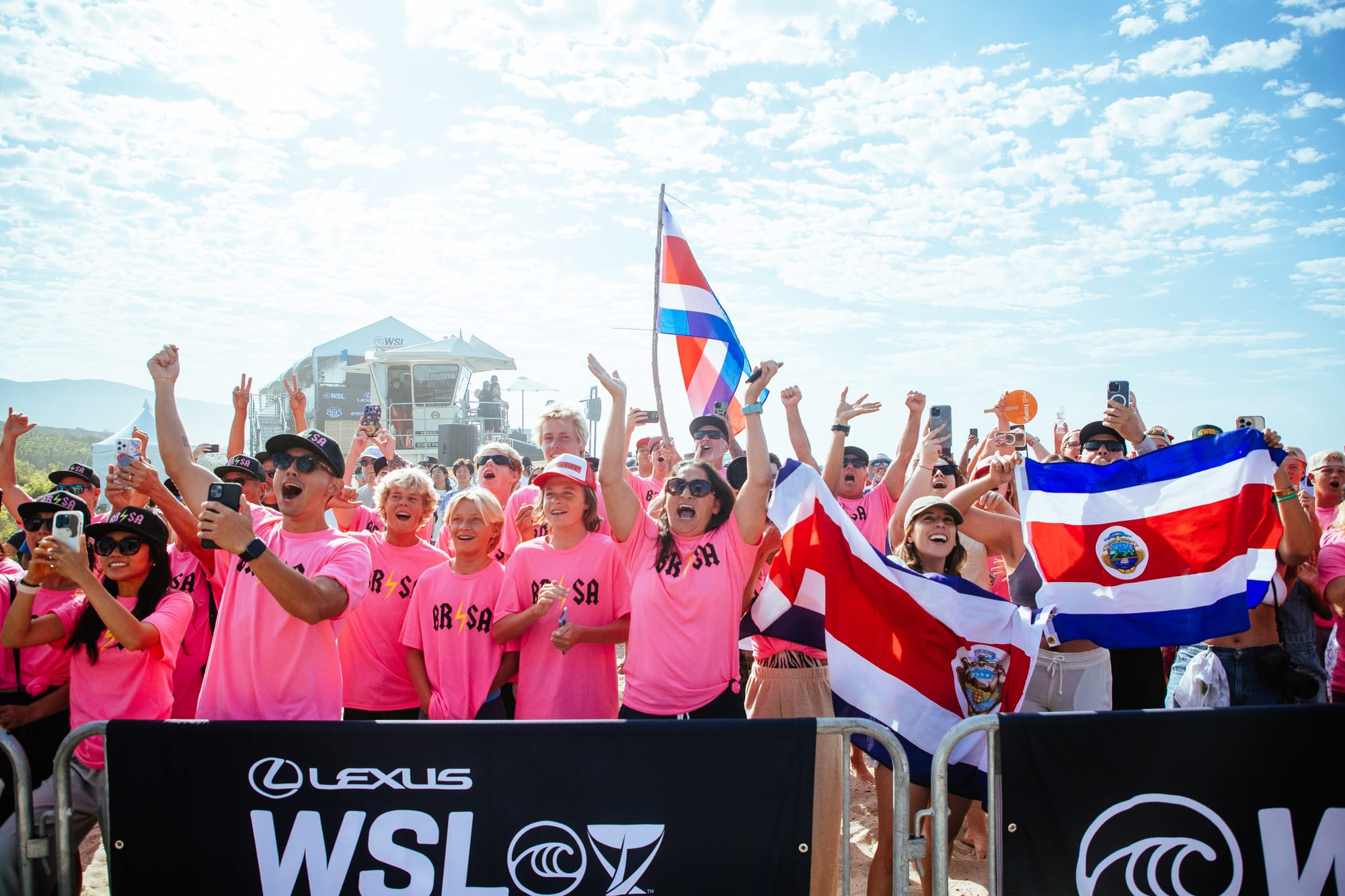
At the opening press event for the finals, there was something that stood out about Brisa. As the 10 athletes were introduced and seated on the stage, she was the only surfer not covered in sponsor logos. As part of her reset, she parted ways with her biggest corporate partner.
There she sat, eyes narrowed by the sun, skin kissed by the same; her long dark hair fell straight, the ends a contrast in color — as if they were dipped in a bucket of golden Costa Rican sunshine.
Her low-key flex was a confident smile and easy-going, positive body language.
When she spoke to the gathered masses — local dignitaries, surfing legends, TV stations from Los Angeles and Australia — her maturity radiated, sweeping through the audience as if carried on that warm ocean breeze.
“I think every year we all go through so many changes and adversity, and I'm so inspired by each of these athletes and I think as surfers, we're learning to deal with so much uncertainty in our life and kind of going with the flow,” she told the crowd. “And it's been amazing to just see how I've grown as a person and as an athlete and being able to surf for something greater for myself and, you know, being able to represent Costa Rica, which is amazing.”
The morning of the WSL Finals, inland cloud cover broke apart, the pale blue sky a table of scattered white puzzle pieces. Sea mist was backlit by the rising sun; the distant haze inviting and sublime. A steady breeze leaned into the coast. In the water, Lower Trestles was pumping as surfers prepared to perform for the sun-drenched masses.
Brisa’s tribe of fans, boisterous and decked out in replica pink tee shirts mirroring her number 99 jersey for the event, hung on every moment as she was introduced and made the jog down the beach and into the water. A man waved a Costa Rica flag on a long, skinny piece of driftwood. Cell phones blocked sightlines as her fans jockeyed for a picture or snippet of video.

She is undeniably popular, and her disposition is worthy of such envy.
Her 35-minute heat was the third of the morning, where Brisa faced Brazilian Tatiana Weston-Webb. This was No. 3 versus No. 4. There’s plenty a surfer can control, but the ocean will always have the upper hand.
The men’s heat prior featured huge sets and gnarly action. For Brisa and Tatiana, the surf gods weren’t as generous. Brisa caught her first wave 12 minutes into her heat and would get just three more before the horn pierced the hovering heat dome, signaling the end. Despite an inspired last-minute ride, she narrowly missed moving on.
If nothing else, the last two years have proven that surfing is what she does, but it’s not all she is. To maintain balance, she has found an equilibrium in passions that ground her.
“I'm a UNICEF Ambassador, and I've been working with them for a couple of years now. When I go down to Costa Rica, I try to do some workshops with the kids — just eating healthy and having awareness of nature and protecting it.
“I think it all starts with the next generation. I feel when you have education, when the little kids are able to grow up and be passionate about what they do. I want to protect the place that I'm from and hope I can do that more.”
She also spends her downtime in the kitchen, inspired by her chef mom.
“I like to bake a lot. I've been really liking to make key lime pie or, we make some really, really good cookies. My mom and I make really good sushi.
“I'm definitely now taking over the kitchen,” she says, laughing. “No, she's taught me everything I know.”
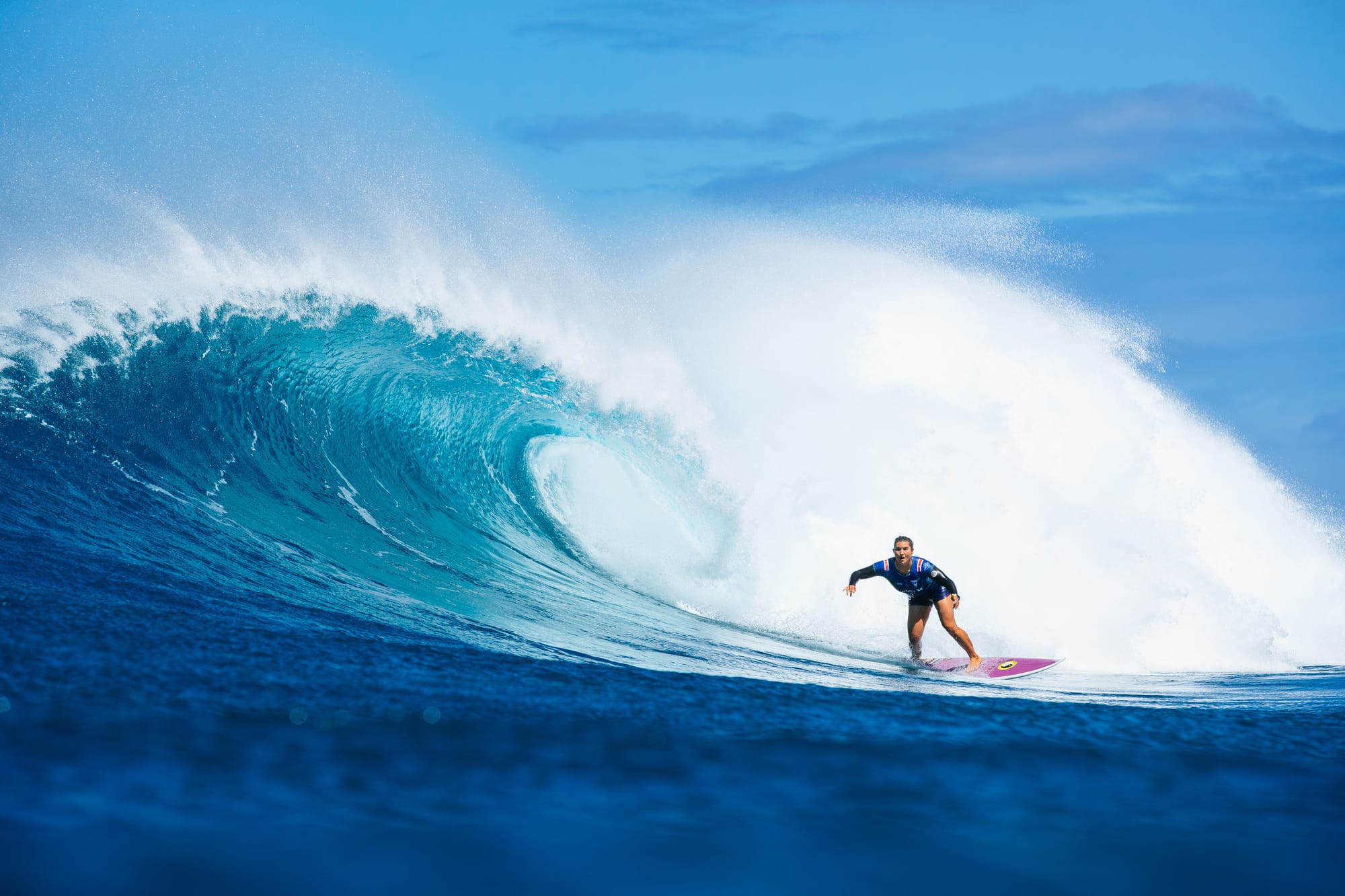
With a future full of opportunity, Brisa has spent plenty of time thinking, analyzing, making changes, competing, performing — living her life. I asked her what she’s thinking about in the heat of competition when she’s out there sitting on her board alone with the waves. Her answer was about surfing, but you can see it’s also about life.
“I think if you're waiting too long you definitely start to overthink. And I think that's when you start to have those expectations and you start to project that, and the waves will not come,” she says. “But if you're in the moment and you're open to receive anything, that's when I feel like your connection with the ocean really aligns and you start to find that flow.
“But it's cool. I feel like every surfer has that flow state and that we all experience time and time again where everything stands still. Yet it's also moving really fast. And you're in that middle ground of feeling everything and present-moment living.”